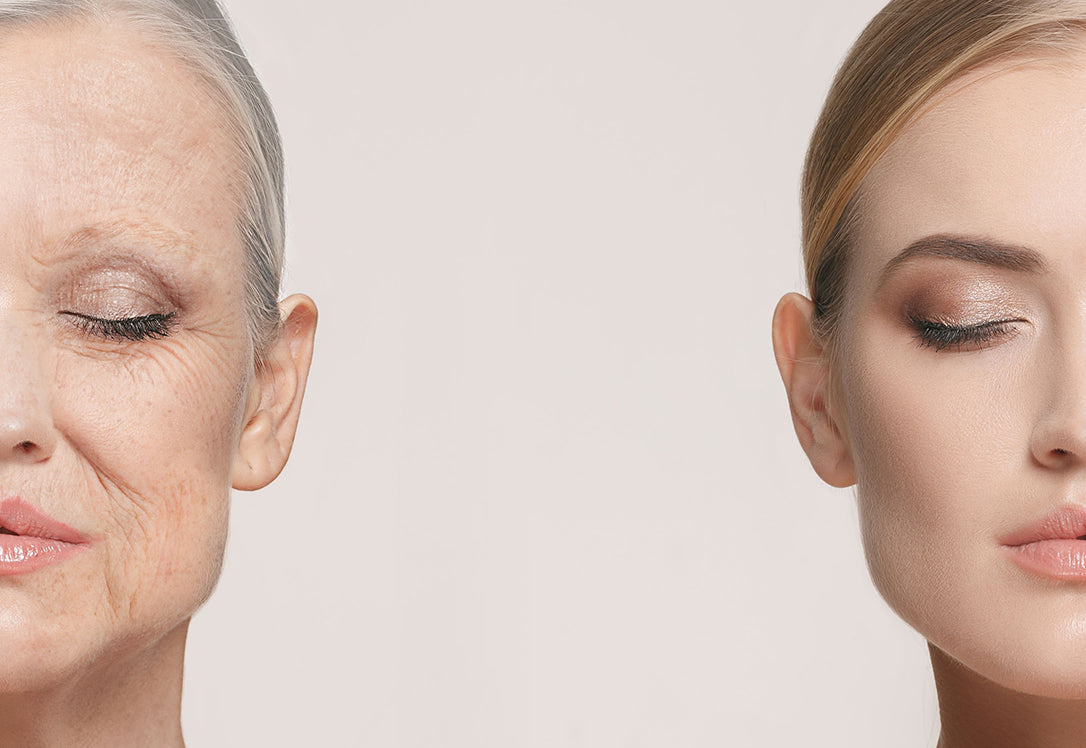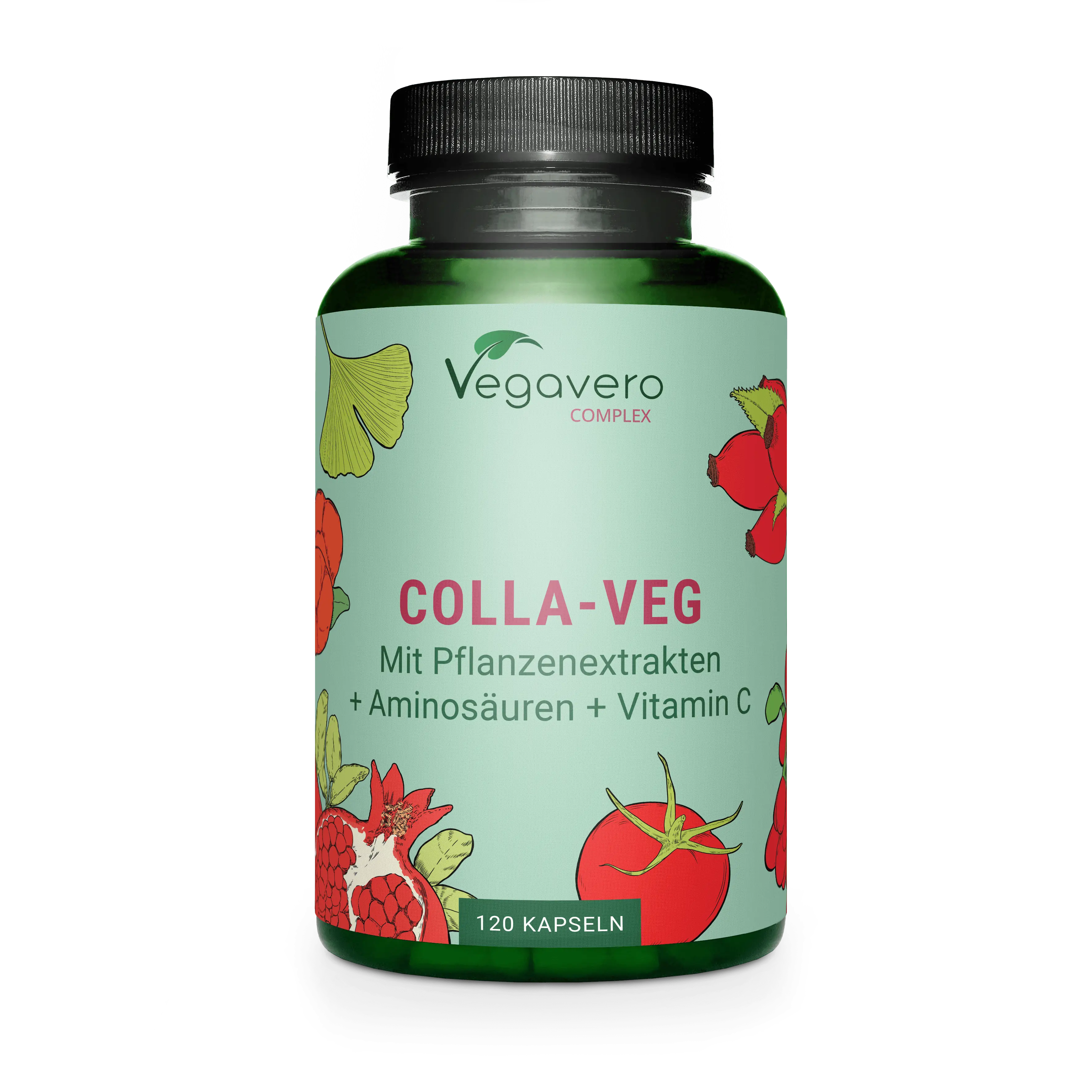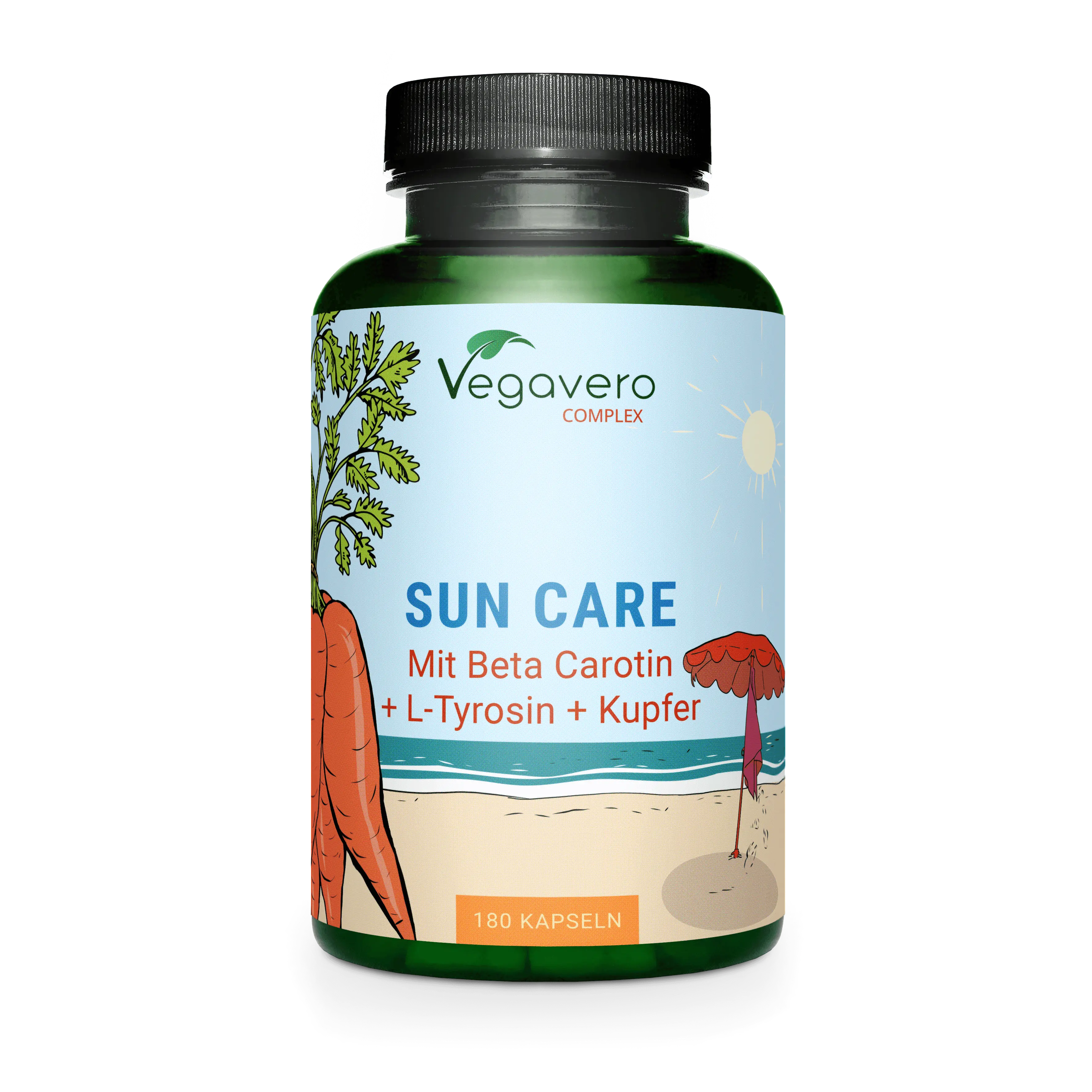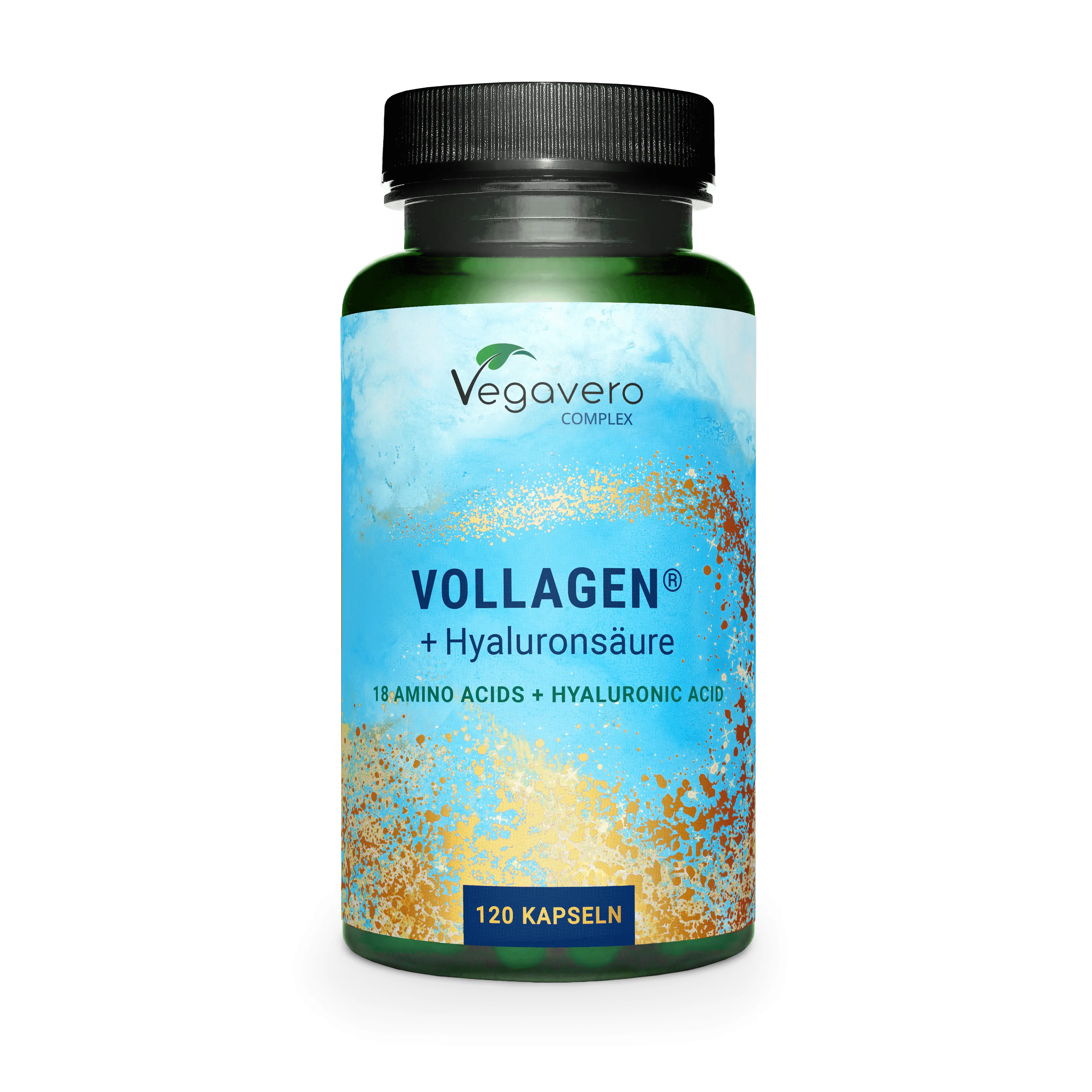How useful are collagen supplements?
Collagen supplements are becoming more and more popular. Whether they’re in capsules, powder form or as a drink, buyers purchase these for wrinkle-free, firm skin, and soft hair until old age. However, many do not know what collagen is and how collagen products are produced. One of the more frequently asked questions is: is there such thing as vegan collagen?
What is collagen?
Collagen is the most important structural protein present in the connective and bone tissue of almost all animals. It accounts for over 25% of all proteins in the human body and acts as a flexible structure in tissues such as skin, cartilage and bones, providing both structure and elasticity.
Protein collagen consists of amino acids, with glycine, proline and hydroxyproline accounting for the largest proportion - more than two thirds. The protein is formed by so-called fibroblasts. These connective tissue-specific cells form chains (polypeptides) of different lengths out of the amino acids, which are ultimately stored together to form long collagen fibres. There are 28 types of collagen, of which type I is the most relevant for skin, bones and cartilage, but also for blood vessels. It accounts for more than 90% of all collagen.
There are several factors that limit collagen production in the body. Our bodies collagen production naturally begins to slow down with age. The result: the skin loosens and develops wrinkles. But our lifestyles also have an influence on the formation and breakdown of collagen. For example, smoking cigarettes seems to significantly limit collagen synthesis [32].
Collagen as a food supplement
In order to counteract this natural process, women particularly, are increasingly turning to supplements in the form of collagen capsules and co. However, many are not aware of exactly what they are consuming. The previous paragraph says it clearly: collagen is obtained exclusively from animal sources - slaughterhouse waste, to be precise. Most supplements have a base of cattle cartilage and bones, as well as fish fins. The term ‘Marine collagen’ sounds a lot nicer, doesn't it?
In most cases, collagen is used in hydrolysed form aka collagen peptides. Collagen hydrolysate is an enzymatically converted collagen that is broken up into smaller amino acid chains by this process and thus better absorbed by the body. In fact, gelatine is produced by more intensive hydrolysis in a non-enzymatic way. Therefore, gelatine and collagen are not so different in how they’re produced.
An anti-aging solution?
Studies into the efficacy of animal collagen supplements are still not very developed or conclusive. Nevertheless, some studies have shown that collagen peptides increase the synthesis of collagen-forming molecules [1], which make the skin of test persons visibly firmer and more elastic [1, 2, 3, 4] and improve nail’s brittleness [5]. The molecular basis seems to be the activation of fibroblasts [6, 7], the cells responsible for collagen synthesis.
The natural approach
Interestingly, the skin firming effect of collagen could be increased by the addition of vitamin C, various plant extracts, or antioxidants derived from plants [1, 8]. A further study by the Charité in Berlin also showed similar results with pure carotenoid-rich green charcoal extract - i.e. without the addition of collagen [9]. Is the answer to firm and healthy skin into old age not to be found in pills, but on our plates?
Let's go back to the biological background of the body's own collagen production in the skin. In addition to fibroblasts, two other components are needed: Amino acids and vitamin C. Vitamin C acts as a co-factor for the enzymes that build collagen from amino acids. If vitamin C is missing, collagen synthesis is inhibited [10]. Vitamin C is not produced by the body, but it must be absorbed through food. But what’s a good source of vitamin C? You got it! Fruit and vegetables.
However, a functioning, efficient collagen synthesis is not the only basis for healthy and beautiful skin and the desirable anti-aging effect. Skin ageing and skin damage are mainly caused by environmental factors such as UV radiation. The results of some clinical studies indicate that plant antioxidants - especially carotenoids - have an inhibitory effect on UV-related skin damage, including DNA mutations [11, 12]. The proportion of antioxidants in the skin is also correlated with the evenness of the skin [13]. Another bonus from carrots & co.
Our Collagen Plus Complex - the herbal alternative to collagen
As previously stated, there is no such thing as collagen that’s derived from natural herbal sources, since collagen does not occur in the plant world. Yet, we have a vegan collagen product in our Complex line. So, what is exactly in it?
With our product we make use of precisely what we discussed in the last paragraph: Plants! Our Collagen Plus Complex contains extracts rich in vitamins and antioxidants from pomegranate, goji, acerola, ginseng, rose hip, tomato and ginkgo, as well as the amino acids L-proline and L-lysine, which promote collagen synthesis in a natural way while supporting healthy skin in other ways.
- Acerola Extract (Vitamin C): vitamin C is essential for the body's own collagen synthesis. But acerola cherry can do even more than that! The polyphenols from acerola have a skin-lightening effect and thus counteract hyperpigmentation caused by UV radiation [14, 15].
- Pomegranate extract (ellagic acid): Ellagic acid is a phenolic antioxidant that has a similar effect on the skin as polyphenols from acerola [16]. In addition, ellagic acid has an inhibitory effect on the (age-related) breakdown of collagen in the skin [17].
- Goji berry extract (polysaccharides): In cell-based experiments, the polysaccharides from goji berries were able to reduce DNA damage caused by UV radiation [18] and also showed protective properties on the lifespan of fibroblasts, the collagen-producing cells [19].
- Rosehip extract (flavonoids): Rosehip oil is not used without reason in wound and scar healing [20]. In addition, the fruits are rich in vitamin C.
- Ginseng extract (ginsenosides): Various studies have already described the collagen-promoting [21, 22] and anti-aging effects [23, 24] of Panax ginseng and the ginsenosides it contains.
- Tomato extract (lycopene): The antioxidant lycopene from tomatoes could stimulate the expression of collagen type I in cell culture with fibroblasts [25]. A lycopene-reduced diet in older women (post-menopause) led to an increase of oxidative stress [26], which demonstrably accelerates the aging process of the skin [27].
- Ginkgo extract (flavonglycosides): The flavonoids from ginkgo, such as Quercetin and Ginkgetin, promote both the proliferation of fibroblasts and the production of collagen in cell culture [28].
- L-Proline: Collagen type I consists of about 20% of the amino acid proline and hydroxyproline;
- L-Lysine: The essential amino acid participates in the formation of intra- and intermolecular cross-links of collagen and elastin - another structural protein - and thus improves the size and amount of collagen fibrils [29, 30].
Plants or tablets?
In summary one could say that it is not necessary to take animal-based collagen supplements in order to do something good for your skin - especially not if animals had to suffer for it. A healthy, wholesome diet with a focus on fresh fruit and vegetables also keeps the skin firm and healthy - and it also has many other health benefits. Of course, keeping up with making sure that we get all the nutrients our bodies need can be difficult. This is why natural supplements such as our Collagen Complex are always a good idea when on the go and alongside a balanced diet.




Veganism: A History & the Basics of the Lifestyle
Cosmetic Ingredients to Avoid